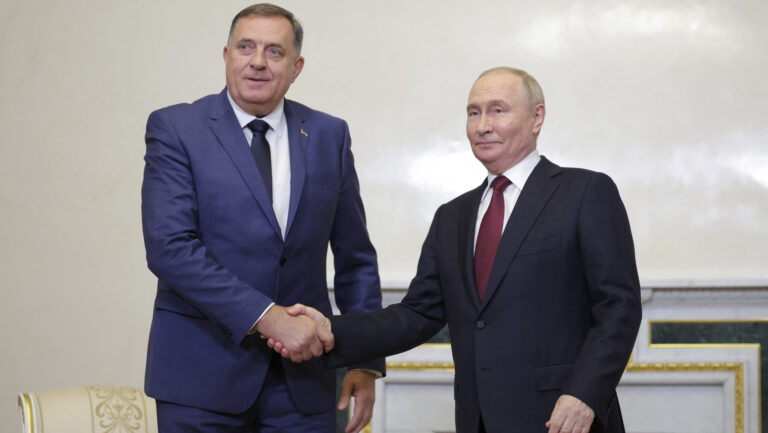Tristan Azbej, the state secretary in charge of the Hungary Helps programme, attended the opening ceremony of an exhibition on persecuted Christians at the Hungarian House in London late on Monday.
‘Currently Christianity is the most persecuted religion in the world,’ Azbej said in his address at the event.
Speaking to Hungarian public media, Azbej stated: ‘The Western world, so proud of promoting human rights and its tolerance, does not begin to grasp the suffering, persecution, and curbing of rights of 300 million people.’
The Hungarian government ‘rejects that attitude, based on its values and humanitarian preferences,’ he added. Since the start of the Hungary Helps programme in 2017, the scheme has reached out to over 1.5 million people in the Middle East, Asia, and Africa persecuted by terrorist or extremist groups because of their Christian faith, he added.
‘This sends an important message of solidarity…a call for assistance to innocent people suffering persecution,’ he said.
‘This message also reflects the values Hungary prefers at a time when Western Christian civilisation denies its own cultural roots,
trying to undermine all that arises from Christian teachings,’ the state secretary remarked.
Azbej said that while Christian communities in the Middle East are still in a difficult situation, the persecution of Christians is most serious in western parts of Africa, with ISIS and other jihadist groups threatening communities. In Nigeria alone, some 3,000 Christians are killed each year, and Hungary Helps has decided to focus its activities on that region.
Christianity is the world’s most widely practised, most influential and most persecuted religion, the head of parliament’s European Affairs Committee said at the event. Speaking to public media at the venue, Judit Varga said the exhibition carried a strong message of support for Christianity. Varga reiterated that the Hungary Helps humanitarian programme constituted one of the tools of the migration policy Hungary represents in the European Union. She stressed Hungary’s stance regarding the need to manage the root causes of migration instead of importing problems and conflicts to Europe.
Related articles:
Earth Day – Tristan Azbej: Hungary Helps Program supports fight against climate change in Africa | Hungarian Conservative
The project is part of the so-called Great Green Wall program, which is helping more than 250 million people in desert areas in Africa.
Sources: Hungarian Conservative/MTI








